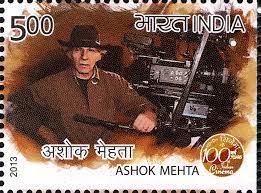The Ashok Mehta Committee was a landmark committee established by the Indian government in 1977 to examine the state of Panchayati Raj institutions in the country. The committee was chaired by Ashok Mehta, a noted Indian politician and social activist, and its findings led to significant reforms in the way local governance is conducted in India.

The Committee was established in response to growing concerns about the lack of effective local governance in India. The committee was tasked with examining the existing Panchayati Raj system, which was designed to provide a framework for local self-governance in rural areas, and making recommendations for its improvement.
It submitted its report in 1978, which recommended significant changes to the Panchayati Raj system. The report called for the creation of a two-tier system of Panchayati Raj institutions.
The committee also recommended for the creation of Nyay Panchayats.
Comparison with the Balwant Rai Mehta Committee.
| Parameter | Balwant Rai Mehta Committee | Ashok Mehta Committee |
|---|---|---|
| Formation | Set up by the Government of India in 1957. | Set up by the Government of India in 1977. |
| Chairman | Balwant Rai Mehta | Ashok Mehta |
| Members | The committee had 10 members, including Balwantrai Mehta, Hriday Nath Kunzru, and K. Santhanam. | The committee had 26 members, including Ashok Mehta, Madhu Dandavate, and I.G. Patel. |
| Scope | The committee’s scope was to examine the feasibility of Panchayati Raj system in India, and recommend measures to improve rural governance. | The committee was tasked with studying the working of the Panchayati Raj institutions, and suggesting measures for their improvement. |
| Recommendations | The committee recommended the establishment of three-tier Panchayati Raj system at the village, block, and district levels. It also recommended devolution of power and functions to the local bodies. | The committee recommended a two-tier system of Panchayati Raj, devolution of power and functions, and provision of financial resources to the local bodies. |
| Implementation | The committee’s recommendations were implemented through the 73rd Constitutional Amendment Act of 1992. | The committee’s recommendations were not implemented as a whole, but contributed to the strengthening and improvement of the Panchayati Raj system. |
| Impact | The committee’s recommendations helped to establish a democratic local self-government system in India. | The committee’s recommendations contributed to the strengthening and improvement of the Panchayati Raj system in India. |
In conclusion, it was a seminal committee that played a critical role in shaping local governance in India. Its recommendations led to the creation of a more robust and effective framework for local self-governance, which has helped to promote rural development and reduce poverty in the country.
Important Links